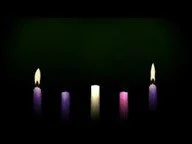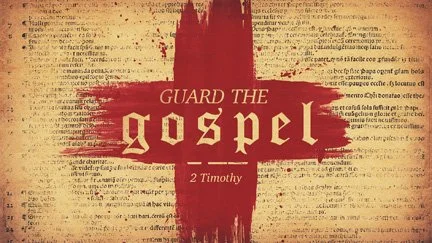I am a hopeless idealist. And I am a dreamer. I dream of a world that is better than the one I see, a world that is what it was created to be. I can definitely relate to the John Lennon song, “Imagine.” I especially appreciate the last verses:
Imagine no possessions, I wonder if you can
No need for greed of hunger, a brotherhood of man
Imagine all the people sharin’ all the world
You may say I’m a dreamer, but I’m not the only one
I hope someday you’ll join us and the world will live as one
Many people have a vision of the perfect world, a hope that things will one day be different, a dream that all the world’s people might live in peace, that all the hungry people will be fed, that all the thirsty people will have clean water, and that people would just learn to get along with each other.
For Christians, that hope – that dream – is caught up in our vision of God’s Kingdom, a kingdom that will only be partially realized in this world until Christ returns to establish God’s kingdom on earth. Christian songwriter David Meece expressed this kind of dream in his song, “Imagine What It’d Be Like”:
Imagine what it’d be like if everyone believed in Him …
Imagine no one searching for a reason to exist
Or wondering why they’re here at all
Well you know that it could be so
If the world would only wake up to His call
Imagine all men everywhere
Praising God and singing with their hearts as one in tune
Well it’s easy to imagine it
But someday soon He’ll make that dream come true
This passage from Isaiah 65 is a vision, a dream, a hope of what might be. And it is a testimony that even in the bleakest hours, the Creator comes to make all things new. The people of Judah had been conquered by the Babylonians over fifty years earlier, and many of them had been carried off into exile. But in 539 BCE, after the Persians defeated Babylon, Cyrus decreed that all exiles could go home. When the first wave of people arrived back in Jerusalem, they were faced with the monumental task of rebuilding a ruined city and a ruined temple. And Isaiah gave them this word from God, promising a time when peace and prosperity would come, when the poor and brokenhearted would be lifted up, and when other nations would come to see the renewal of the city of God. This promise would be partially realized in the near future, and the rest remained in the distance, a coming glory for God’s people.
Think about the scale of what God is promising. God doesn’t send a message that he will recreate Jerusalem, or Judah; he sends a message that he is going to create new heavens and a new earth. A God who is capable of doing that is certainly capable of transforming anything and anybody. Martha Sterne, Associate Rector at Holy Innocents’ Episcopal Church in Atlanta, writes that “there is nothing in all of creation, or in all that we imagine beyond creation, that is beyond the capacity of God to change. For people mired in regret or loss or sin, and for people ground down by oppression and the pain of living in bondage, what a message! Nothing is final, everything is up for grabs in the mystery of the creative capacity of God.” In other words, no matter what the circumstances, God has the ability to create something new.
God promised that the former things would not be remembered or come to mind. These former things God was talking about was the time of Judah’s disobedience and punishment, the time of defeat and destruction and exile. The people had turned away from God, and the consequences of their unfaithfulness were real. They experienced the horrors of war and being carried off into a foreign country. But these consequences would not even be a distant memory anymore. They would experience a kind of “holy amnesia” from God. Maybe there are some memories that are best lost forever, so that people can start over again. My mother used to say that our minds have this wonderful ability to forget the painful memories and hold onto the happy ones. I know that I have to really work at it to remember the horrible days of her illness and death, but I can easily recall the good times we had together. Sterne says that intentional, prayerful forgetting is a kind of creative stuff from which God’s gift of healing and forgiveness can emerge. When we aren’t burdened by the bad memories, the memories of our own “former things,” we can move forward into the future that God has created for us.
God promised that their time of mourning will come to an end. There would not be any weeping or distress. There would be no more reasons for grief and people would live long lives filled with joy. I think a part of that was in realizing how much they had to be grateful for: they had survived the years of exile; they had been allowed to go home; they would be able to rebuild their capital city and their temple. They would live and die in their own land. The prophet even used the image of no more infant mortality and people living to a hundred years of age on a routine basis.
God promised that there would be economic justice in this new creation. People would not build houses only to have someone else live in them because they were forced off their land by the rich and powerful. They would not plant crops only to have other people eat them. The land was God’s gift to all people, and all would share in its bounty. Everyone would join in the work of building and planting, and each would enjoy the fruits of their labor.
God promised that he would answer when his people called. In the former times, God did not answer because the people never even called on him. But now God would answer even before they called. God would be listening so closely that before their concerns were even out of their mouths, he would hear them and respond to them. This would be because of the new intimacy in the relationship between the people and
God. They would now have a deep and active relationship. The people realized their dependence on God and their need to worship only God. They had learned from their previous disobedience and its consequences. And they now desired to have a close relationship with the God who had brought them home from exile.
Finally, God promised that there would be peace and harmony in all of his creation. The wolf and the lamb would feed together; the lion would eat straw like an ox. The future was seen as a return to the time when creation was all in perfect harmony. And, God said, “They shall not hurt or destroy on all my holy mountain,” in other words, in the new Jerusalem.
Isaiah wrote about the transformation of the world as he knew it. Jerusalem would be transformed from a city of wickedness, injustice, false worship, and ruin into a glorious new city. This image became the prototype for the New Testament prophecies of a new heaven and a new earth in Revelation. We read in Revelation 21:1-2, “Then I saw a new heaven and a new earth … I saw the holy city, the new Jerusalem, coming down out of heaven from God.” In Revelation’s new heaven and earth, there are many of the same elements as in Isaiah’s prophecy. There will be no more weeping or crying; God will be close to the people and they will be in close relationship with God; there will be peace and harmony among all creatures; there will be justice for all people; and no one will live in want of anything, but all our needs will be provided for.
Jesus spoke of the Kingdom of God as something that has already begun and as something that would be realized fully in the future. Whenever we live according to the example of Jesus, we are bringing a piece of the Kingdom of God into our world. We are doing the work of new creation and transformation, one act, one word, at a time. Mary Eleanor Johns, of Pittsburgh Theological Seminary, writes, “We are able to give one drink of cold water at a time. We are able to bring comfort to the poor and the wretched, one act of mercy or change at a time. One book given, one friendship claimed, one covenant of love, one can of beans, one moment of commendation, … one challenge to the set order that maintains injustice, one declaration of the evil that is hiding in plain sight, one declaration that ever person is a child of God: these acts accumulate within God’s grace.”
Can you see the vision? Can you dream with me? Can you imagine it? “You may say I’m a dreamer. But I’m not the only one. I hope someday you’ll join us and the world will be as one.”









